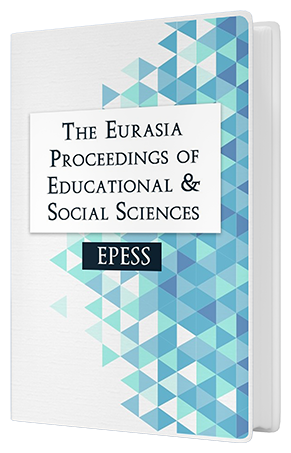Development of a Value -Based Curriculum Model for the Environment in the Vocational College Standard Curriculum in the Field of Refrigeration and Air Conditioning: A Needs Analysis
DOI:
https://doi.org/10.55549/epess.1217300Keywords:
Curriculum model, Needs analysis, Design and development, Suitability, Usability.Abstract
This curriculum model is a value-based model of environmental sustainability built through the Vocational College Standard Curriculum of Refrigeration and Air Conditioning (VCSC_ RAC). Concerning that, this study proposes a Research, Design and Development (DDR) approach which is a multi-method development research approach. The study will go through three phases and use several different research tools in each phase. The involvement of study participants from expert groups and user groups consisting of field lecturers will be able to provide various inputs and consider aspects of the model’s needs in addressing the problem of the impact of refrigerants on the environment through VCSC_RAC. The purpose of this study is to identify the needs analysis for the development of this curriculum model. The study was conducted by survey method that is using questionnaires. Questionnaires were distributed to Vocational College (VC) lecturers in the field of Refrigeration and Air Conditioning (RAC) throughout Malaysia. Researchers have found that there is a need to build a value -based curriculum model for the environment. The findings of this study indicate the need for the curriculum model to be built through VCSC_RAC based on values towards the environment. The emphasis on the value aspect of the environment is very relevant so that the quality of teaching and learning in VC can be improved to provide students with values, awareness and responsibility towards the environment.Downloads
Published
Issue
Section
License
Copyright (c) 2022 The Eurasia Proceedings of Educational and Social Sciences

This work is licensed under a Creative Commons Attribution-NonCommercial-ShareAlike 4.0 International License.
The articles may be used for research, teaching, and private study purposes. Any substantial or systematic reproduction, redistribution, reselling, loan, sub-licensing, systematic supply, or distribution in any form to anyone is expressly forbidden. Authors alone are responsible for the contents of their articles. The journal owns the copyright of the articles. The publisher shall not be liable for any loss, actions, claims, proceedings, demand, or costs or damages whatsoever or howsoever caused arising directly or indirectly in connection with or arising out of the use of the research material. All authors are requested to disclose any actual or potential conflict of interest including any financial, personal or other relationships with other people or organizations regarding the submitted work.




